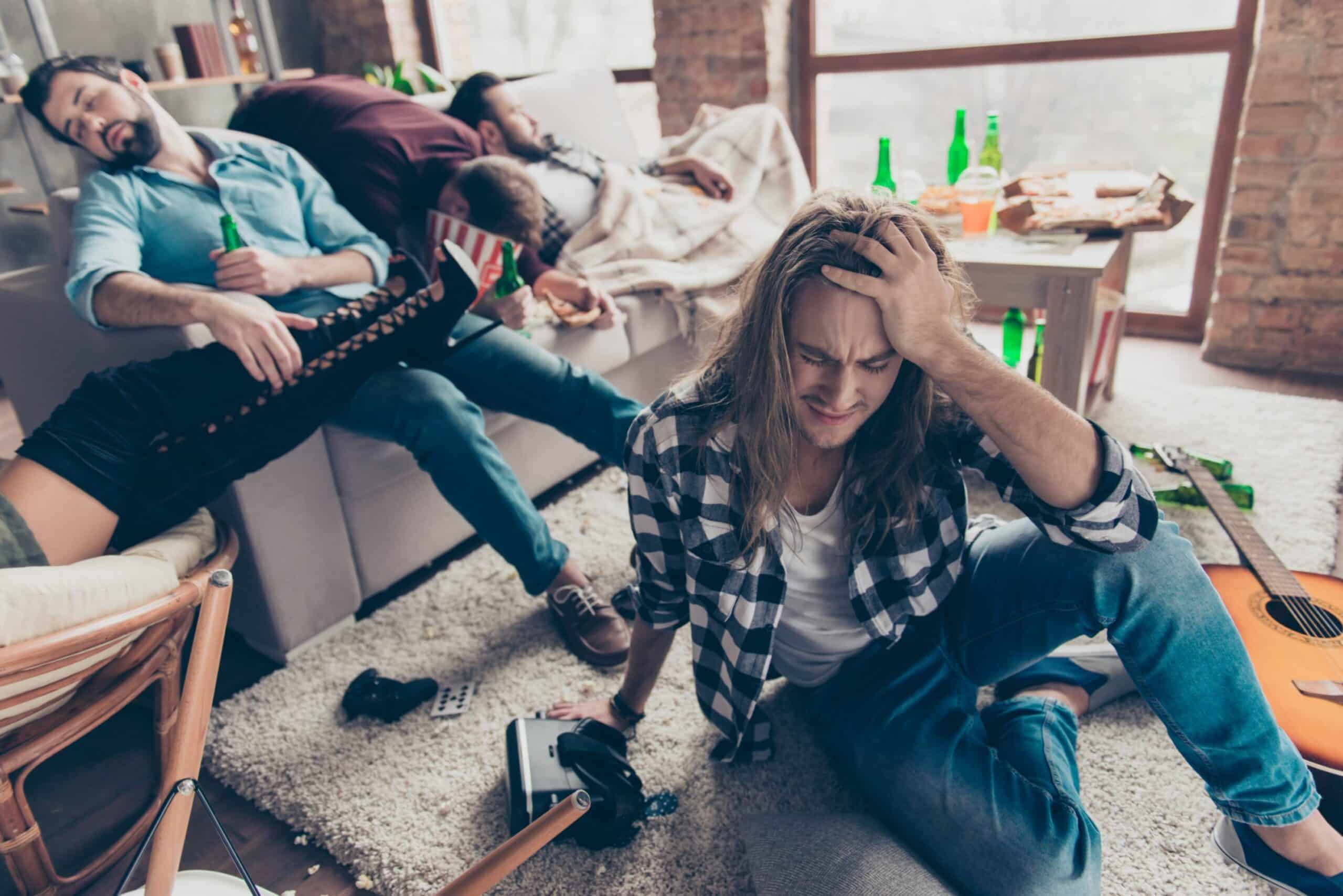Let’s talk about the science of alcohol and sleep and why modifying your routine could help you look younger and potentially save your life.
Why REM Sleep Is So Important
When you lie down in bed and drift into a dream world under the cool sheets, you go through many stages. You begin by going through three stages of non-rapid eye movement (NREM). It’s during this period that your body begins to wind down as your heartbeat and breathing start to slow and your muscles become totally relaxed, and you enter slow-wave sleep. Then comes REM sleep.
It’s this time that your heart rate starts to speed up again, the eye movements begin, and you’re officially in a dream state. While research about this phenomenon continues throughout the years, scientists believe that your eyes move during REM sleep because your brain processes new visual information as you rest.
You may not remember your dreams every night, but this part is more about your health than your fantasies. When you’re sleeping in the REM state, your brain waves increase, and then your brain starts linking memories together. It’s essential to keep your memory intact as you age, and a good night of sleep can keep your memory healthy, helping you to better process information and problem-solve when you’re awake.
Sleep is a cornerstone of good preventive health. When you lack the necessary rest, your immune system can’t repair itself, and you increase your risk of health problems like high blood pressure, heart attack, and dementia. If you’re dealing with numerous health issues then you’re also more likely to get upset, and that anxiety can turn into depression. As you age, rest becomes even more essential because the older you get, the more these ailments can affect your well-being.
How Alcohol Disrupts REM Sleep
So, now that you know why it’s so important to get good sleep, it’s essential to learn how alcohol can cause disruptions and unending problems. The fact is that overindulging with alcohol is never good. You may think that it just makes you feel inebriated, but what it’s doing inside your body is so much worse. Beer or alcoholic beverages also affect many different parts of your body, starting with your immune system. Alcohol can negatively affect your white blood cells’ ability to fight off illness.
Alcohol also affects your central nervous system. That system is connected to your brain and responsible for your comprehension and thinking ability. You need time to get through the first three sleep cycles and get to the REM stage; each stage can take at least 90 minutes. Alcohol is a sedative, and when you drink a lot, especially before bed, you fall asleep faster, often bypassing those stages and creating an imbalance, disrupting your sleep.
If you drink alcohol every day, especially in the evening, then your sleep balance can be disrupted so severely that you could start to develop insomnia. To remedy the issue, many people try to drink more just to get some shut-eye, and it can be a vicious cycle.
Even if you don’t drink right before bed, constant alcohol abuse can affect your mental health as you age by interfering with the formation of new brain cells and killing off existing cells. When that happens, it inhibits brain function, and you may experience constant memory loss or other cognitive issues.
Strategies for Getting Proper Sleep
Long story short, you need to control your drinking and ensure you get enough sleep to age gracefully and prevent health issues. If you believe that you have a problem with alcohol, then don’t hesitate another second and get the help you need. When you turn to it whenever you have stress or anxiety, you need to contact a counseling center and speak to a professional.
Even if you drink casually, it’s essential not to do so too close to bedtime and instead stop drinking at least 4-6 hours before you hit the sack. You’re giving your body time to metabolize the alcohol, which it does at one drink per hour, so when you go to sleep, the drinks are out of your system.
Having that last drink at a specific time should be part of your new wind-down routine, where you help your body relax towards the end of the day. When you get home from work, listen to soothing music or another relaxing hobby like making puzzles or anything else that puts you at ease. Eat an early dinner and avoid heavy snacks shortly before bed that will upset your stomach and keep you awake. Then, make your way to the bathroom/bedroom. Brush your teeth, floss, and get your mind and body ready for bedtime.
It’s essential that you get seven to nine hours of sleep every night and that you set yourself up for success in the hours before bed. Change your thoughts about alcohol or eliminate it entirely, and you’ll sleep peacefully and feel better overall.




